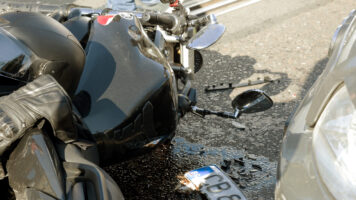People use the term “reckless driving” frequently, but not all driving labeled as such fits this definition. Whether you suffered an injury in an accident due to a reckless driver or someone else, you still deserve full and fair compensation for your injuries. However, in some cases, victims of reckless drivers can recoup more damages than others.
Suppose you suffered an injury in such an accident. In that case, it’s imperative to seek medical treatment immediately and reach out a seasoned car accident attorney immediately.
What is Reckless Driving?
Reckless driving is a traffic offense characterized by the deliberate disregard for the safety of others on the road. It involves operating a vehicle with a willful or wanton disregard for the potential consequences and exhibiting a blatant indifference to the well-being of others.
Examples of Reckless Driving
Reckless driving is a serious offense in all 50 states that substantially threatens public safety, although its definition may vary by jurisdiction. These examples highlight behaviors that are universally considered reckless and dangerous on the road:
- Excessive Speeding: Driving at speeds significantly above the posted speed limits, especially in areas where a lower speed is warranted, such as school zones or residential areas.
- Aggressive Tailgating: Following another vehicle too closely with aggressive behavior creates a hazardous situation and increases the risk of a collision.
- Running Red Lights or Stop Signs: Ignoring traffic signals or stop signs without slowing down or stopping, endangering other drivers and pedestrians at intersections.
- Overtaking Unsafely: Passing other vehicles unsafely, such as on curves, hills, or in no-passing zones, risking a collision with oncoming traffic.
- Distracted Driving: Engaging in activities that divert attention from driving, such as texting, talking on the phone, or using in-car entertainment systems, leading to impaired judgment and reaction time.
- Driving Under the Influence (DUI): Operating a vehicle while under the influence of alcohol or drugs, impairing judgment, coordination, and the ability to operate a vehicle safely.
- Reckless Lane Changes: Abruptly changing lanes without signaling, checking blind spots, or ensuring that it is safe, posing a risk of collisions with other vehicles.
- Racing on Public Roads: Engaging in impromptu races or speed competitions on public roads puts both participants and other road users at significant risk.
- Ignoring Weather Conditions: Failing to adjust driving behavior to adverse weather conditions, such as heavy rain, snow, or fog, can lead to loss of control and accidents.
- Ignoring Emergency Vehicles: Failing to yield or move aside for emergency vehicles with activated lights and sirens hinders their ability to respond to emergencies promptly.
An example of reckless driving might involve a driver excessively speeding through a busy intersection, ignoring traffic signals, and nearly causing multiple collisions. Imagine a scenario where a law enforcement officer witnesses this behavior. The officer, concerned for the safety of everyone on the road, initiates a traffic stop. Upon investigation, the officer may determine that the driver’s actions posed a significant risk to others, qualifying as reckless driving under the law.
Common Causes of Reckless Driving
Inexperience and Reckless Driving
Some instances of reckless driving stem from a lack of experience and peer pressure, particularly among teenage drivers. Young or novice drivers may not fully grasp the hazards associated with intentional and reckless driving behaviors, such as speeding. With limited driving experience, they may not comprehend the potentially fatal consequences of reckless driving.
Inexperienced drivers might engage in risky behaviors, including excessive speeding, drag racing, driving without headlights, running red lights, making unsafe lane changes, engaging in distracted driving, or fleeing from the police due to peer pressure or a lack of experience. Wanton violations of roadway rules by young, reckless drivers have the potential to shatter lives, including their own.
Road Rage and Reckless Driving
Many instances of reckless driving originate from frustrated, angry, aggressive, or road rage-driven behaviors. Drivers experiencing road rage may make risky choices such as brake-checking, tailgating, honking, flashing lights, speeding, passing too closely, or weaving between lanes. The intense emotions of road rage can cloud a driver’s judgment, leading to poor decision-making behind the wheel. This heightened emotional state can result in a catastrophic car accident. If an angry or aggressive driver causes a preventable car accident, they may be liable for damages.
Impatience and Reckless Driving
Excessive speed is a prevalent form of reckless driving often implicated in fatal accidents all across the United States. Reckless driving charges may apply if a driver exceeds 80 miles per hour or surpasses the posted speed limit by more than 20 miles per hour in some states.
Impatience and the urgency to reach a destination quickly are common triggers for speeding. This behavior is frequently preventable by allowing ample time for travel. Driving at speeds too high for the prevailing conditions can result in high-velocity collisions, causing catastrophic or fatal injuries. Being in a hurry may also lead to other forms of reckless driving, such as passing a school bus, passing an emergency vehicle, overtaking on a hill or corner, or attempting to pass at a railroad crossing.
Penalties for Reckless Driving
Legal penalties for reckless driving can vary by jurisdiction. But most include one or more of the following:
Fines
Fines are the common consequences imposed on individuals charged with reckless driving. The fines usually range from $50 to $1,000, depending on state laws and the circumstances.
Jail Time
If a person is convicted of driving recklessly, they can spend some time in jail. This is because reckless driving is considered a criminal offense. Again, jail time varies by state and circumstances, but the maximum jail time one can expect is 12 months.
Probation
Sentencing an individual to probation depends on the circumstances and the person’s driving history. Probation sentencing only applies to those who fit the exact criteria. A couple of examples of such punishment include making visits to a probation officer and refraining from committing traffic violations or crimes. Not complying with the stipulations can lead to imprisonment.
Driver’s License Demerit Points
Another penalty for reckless driving is the addition of demerit points to the individual’s license. Up to six points can be added and will remain on the license for 11 years. These points on the license indicate a bad driving history, directly causing higher insurance premiums. Accumulating too many points on your driving record can lead to the suspension of the license.
Driver’s License Suspension
Individuals charged with reckless driving risk having their license suspended. The suspension is usually 30 days, but it can be lengthier for those with a history of traffic violations. In some cases, individuals may lose their license and their driving privileges altogether.
Legal Reckless Driving Penalties Don’t Pay for Damages
It’s important to note that while these penalties are appropriate and warranted, they don’t make up for any damages victims in reckless driving car accidents suffer. Most of the time, seeking compensation for losses and expenses in an accident requires pursuing an insurance claim and possibly a lawsuit. Always take these actions with representation from an experienced car accident attorney.
You can still pursue a civil claim, even if the reckless driver who caused your accident faces a reckless driving conviction. While these two cases are quite different, they can run concurrently. Sometimes, a criminal conviction can help provide convincing evidence for full and fair compensation for injury victims pursuing a civil case.
Types of Injuries Caused by Reckless Driving
Reckless driving can lead to a wide range of injuries, varying in severity. Some common types of injuries caused by reckless driving include:
- Whiplash: Sudden acceleration or deceleration in reckless driving incidents can cause the neck to jerk violently, resulting in whiplash. This can lead to neck pain, stiffness, and other associated symptoms.
- Fractures and Broken Bones: High-speed collisions or aggressive driving maneuvers can result in fractures or broken bones. Broken ribs, pelvis, legs, ankles, collarbones, and wrists are typical.
- Head Injuries: Uncontrolled speeding or reckless behaviors may lead to head injuries, ranging from concussions to traumatic brain injuries (TBI). These injuries can have long-lasting and sometimes permanent effects on cognitive functions.
- Back Injuries: The force of a reckless driving impact can cause injuries to the spine and back. This may include herniated discs, spinal cord injuries (SCI), or damage to the soft tissues in the back.
- Internal Injuries: Violent collisions can cause damage to internal organs, leading to internal bleeding or organ injuries. These injuries may not be immediately apparent and can be life-threatening. They are one reason accident victims should seek medical care immediately after being involved in any type of motor vehicle accident.
- Lacerations and Abrasions: Sharp objects within the vehicle or external elements during a crash can cause cuts, lacerations, or abrasions. These injuries may range from minor to severe, depending on the circumstances. They may require stitches or even surgery to heal. Some may leave lasting scars.
- Psychological Trauma: The emotional impact of a reckless driving incident can result in psychological trauma, such as post-traumatic stress disorder (PTSD), anxiety, or depression.
- Amputations: Severe accidents, especially those involving high speeds, can lead to traumatic injuries that may necessitate amputations or the loss of limbs.
- Paralysis: Injuries to the spinal cord during a reckless driving accident can result in partial or complete paralysis, impacting the victim’s mobility and quality of life.
- Fatalities: In the most tragic cases, reckless driving accidents can lead to fatalities, leaving families and communities devastated. Thankfully, their family members or a personal representative can still seek damages on their behalf through a wrongful death action.
The specific injuries sustained in a reckless driving incident depend on various factors, including the speed of the vehicles involved, the nature of the collision, and the use of safety features such as seat belts and airbags. Pursuing immediate medical attention and legal assistance is crucial for those involved in such accidents.
Determining Compensation in Reckless Driving Cases
When a reckless driver is responsible for an accident, seeking damages or financial compensation for injuries becomes crucial for victims. Those affected by reckless driving should hire a seasoned attorney to carefully prepare a comprehensive damages demand to ascertain that the compensation recovered is sufficient to cover all associated expenses.
Recovery may encompass damages for:
- Medical Expenses: Accidents involving reckless driving often result in physical injuries. The responsible party may be responsible for the victim’s medical expenses, including doctor visits, hospital stays, emergency transportation, and prescription medications. Suppose ongoing care, such as physical therapy, is necessary. In that case, the demand for medical expense damages may include an estimated cost of future treatment.
- Lost Wages: Injuries sustained in accidents frequently lead to missed work or a reduced work schedule. Including any lost income in the damages demand is essential. If the injuries hinder a victim’s ability to return to work with the same earning capacity, the defendant may also be responsible for future lost income and lost earning potential.
- Property Damage: Reckless drivers can be liable for costs associated with repairing or replacing damaged or destroyed property in an accident.
- Emotional Distress: Car accident victims often experience emotional distress, such as anxiety, depression, and post-traumatic stress disorder. These emotional injuries can be quantified and included in the demand.
- Loss of Enjoyment of Life: Injuries that prevent participation in activities once integral to one’s life may contribute to the damages you demand.
- Punitive Damages: While damages primarily aim to compensate victims, punitive damages punish defendants for egregious behavior. In reckless driving cases, victims may be more likely to collect punitive damages, given the disregard for safety inherent in reckless driving. However, the criteria for recovering punitive damages vary from state to state. Punitive damages are only available if the judge or jury awards them in a civil trial.
How Much Is My Case Worth?
The amount of damages you can receive from a reckless driving settlement or court case depends on the accident’s severity, your long-term prognosis, and many other factors. If the accident totaled your vehicle, you will receive more compensation than someone whose vehicle received minor damage.
Some people have higher costs associated with their accidents. For example, a single person doesn’t have to worry about paying for childcare, but a person with children and an older parent to care for may have childcare and home care costs.
Individuals with severe, life-altering injuries may also receive more compensation. Permanent injuries, such as amputation, paralysis, or TBIs, usually justify higher settlements.
How a Car Accident Attorney Can Help

Daniel J. Grimm, Cape Girardeau Reckless Car Accident Attorney
Car accident attorneys provide crucial legal counsel after an accident. They can clarify your rights, answer your questions, and ensure you take all the appropriate steps after your accident. Your car accident attorney will prepare and file legal documents so your case proceeds, and we’ll gather evidence to support your claim. Your lawyer can also evaluate how much compensation to seek and will handle settlement negotiations with the at-fault party.
After injuries from a reckless driver, don’t simply trust that the insurance companies will take care of you. Fight for the compensation you deserve by hiring the right Missouri personal injury lawyer.



